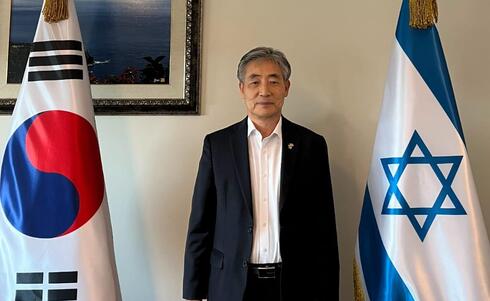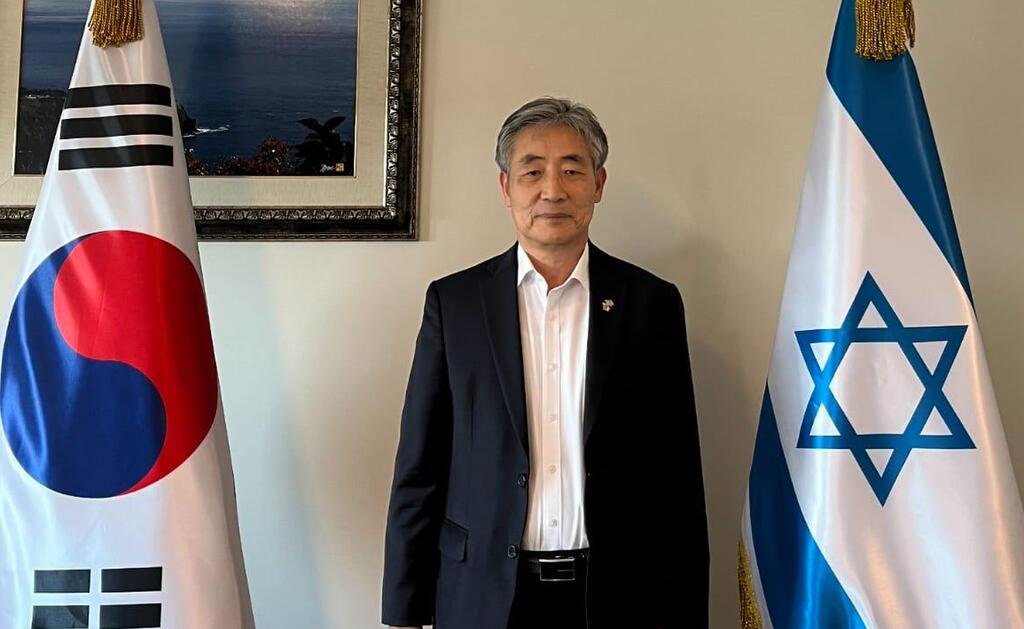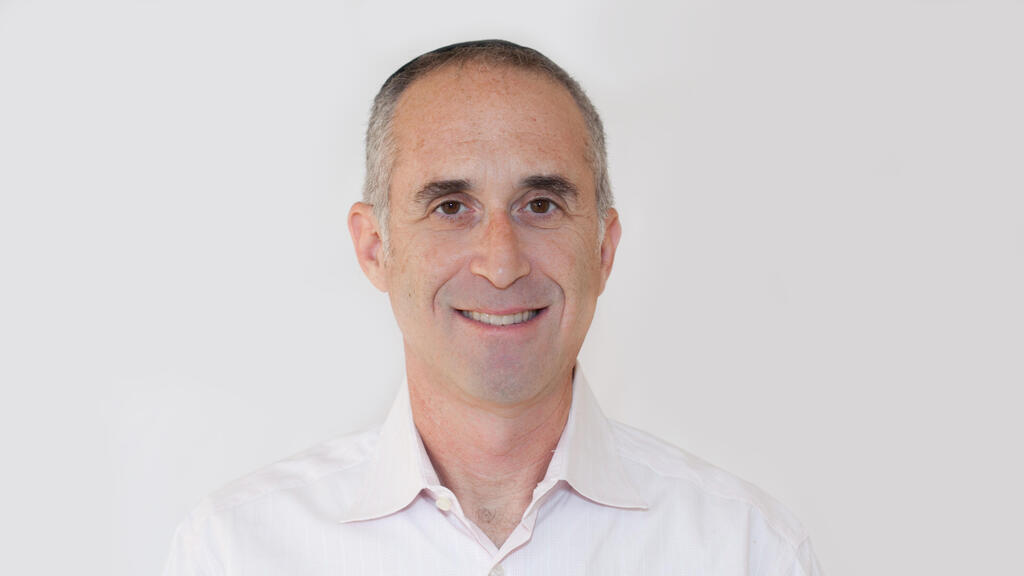
"A gun in one hand and a computer in the other": Israel and South Korea’s growing tech partnership
Ami Orkaby, Honorary Consul General of Korea to Israel and President of the Israel-Korea Chamber of Commerce, believes that while Korea and Israel differ in many ways, there are also strong cultural similarities. “We’re go-getters, and the Koreans specifically are like that—they take initiative.” South Korean Ambassador to Israel, Kim Jin-Han, told CTech: “We complement each other’s strengths. The Israeli economy is heavily based on startups, tech, and innovation. Korea has an economic structure centered on export, based on manufacturing technology.”
“Last year, we initiated a new $80 million fund even during wartime, which shows how committed we are to technological cooperation,” said South Korean Ambassador to Israel Kim Jin-Han, speaking from the Korean embassy in Herzliya.
Despite Israel’s ongoing geopolitical instability, South Korea has continued to deepen its economic and technological ties with Israel, viewing the country as a crucial partner in innovation. From venture capital funds to government-backed cooperation agreements, Israeli and Korean companies are increasingly collaborating across key industries such as artificial intelligence (AI), cybersecurity, semiconductors, and mobility.
Technology is at the heart of South Korea’s interest in Israel. “The most important thing for us is technology,” said Ambassador Jin-Han. “Even during a war situation, your economy is robust because of your tech, which is the most important thing.”
South Korea, the world’s 10th-largest economy, is renowned for its manufacturing and export-driven growth. Israel, by contrast, is a global leader in startup innovation and R&D. “We complement each other’s strengths,” said the ambassador. “The Israeli economy is heavily based on startups, tech, and innovation. Korea has an economic structure centered on export, based on manufacturing technology.”
While South Korean giants such as Samsung and LG have long had a presence in Israel, collaboration between the two countries is expanding beyond conglomerates to include startups and SMEs. “There are many small and medium-sized companies with cutting-edge technologies in Korea, but Israelis don’t know about them,” said Ambassador Jin-Han. “They always want to be connected to the conglomerates.” Likewise, Korean SMEs are also looking to enter the Israeli market.
Ami Orkaby, Honorary Consul General of Korea to Israel and President of the Israel-Korea Chamber of Commerce, believes that South Korea is Israel’s closest partner in Asia. “Korea is probably our best friend in Asia—definitely our closest tech partner. They identify strongly with Israel.”
Orkaby, Of counsel at Meitar Law Firm, is also the sole legal advisor to the South Korean government in Israel. He has served as an economic bridge between the two countries and was a partner and co-founder of MAC Fund, the first joint Israeli-Korean VC.
While Korea and Israel differ in many ways, Orkaby sees strong cultural similarities. “Both have had to contend with constant security threats and do so with the perspective of a gun in one hand and a computer in the other.” He also points to a shared emphasis on education and industriousness. “We’re go-getters, and the Koreans specifically are like that—they take initiative.”
One of the most significant recent developments in Israeli-Korean tech relations is the launch of a binational venture capital fund, jointly managed by Israeli VC firm OurCrowd and Korea’s NH Venture Investment. The government launched a bidding process to create a binational VC fund with a foreign partner, drawing applications from Korean-German, Korean-Malaysian, and other pairings. OurCrowd, partnering with NH Venture Investment, ultimately won the bid.
This was particularly significant given the timing. “The bid was awarded to OurCrowd in November 2023 - a month after October 7 and Israel’s war in Gaza,” said Ely Razin, Partner and Chief of Strategic Investments at OurCrowd.
“If this isn’t a vote of confidence, I don’t know what is,” says Orkaby, who also serves as a venture partner for the fund. NH Venture Investment, a subsidiary of Korea’s NH Financial Group, manages $400 billion in assets—“about seven times the size of Bank Hapoalim,” noted Razin. The deeptech fund is mandated to invest half in Korean projects and half in predominantly Israeli startups, focusing on AI, cybersecurity, defense, semiconductors, mobility, and quantum computing.
Razin emphasized that the fund’s strategic goal is “to leverage the strengths of Israel and Korea when making decisions and how to add significant and long-term value to these ecosystems.”
A long-term friendship
“There is a deep sentiment and a strong bond between our peoples,” says Ambassador Jin-Han. “There is a lot of admiration and identification with Israel. I remember in middle school learning about Israel as an example of how to overcome challenges.”
Orkaby credits the 2008 publication of Dan Senor and Saul Singer’s Startup Nation with raising awareness of Israel’s tech ecosystem. “It was on the best seller list for several years in Korea. The book created such an amazing buzz in regards to Israel. You could walk around Seoul and people on the street would use Hebrew or Yiddish words like ‘chutzpah.’”
South Korea was the first East Asian country to sign a free trade agreement (FTA) with Israel in 2022, a deal that includes a unique provision for technological cooperation. “The FTA removes a lot of barriers and regulations for Israeli exporters and importers,” said Orkaby. The tech clause has a special focus on AI and cybersecurity, two emerging areas of cooperation between the two nations.
Beyond business, South Koreans and Israelis share cultural and historical similarities, from a strong emphasis on education to overcoming geopolitical challenges. Both countries have faced significant security threats and built strong economies despite adversity. “We also had similar challenges surrounding security and economic development,” said the ambassador. “We had many difficulties to overcome—the Independence War, the Korean War, many adversaries including China and North Korea.”
“But we have a ‘can-do’ philosophy—we can do everything,” he continued. “And we also place a strong emphasis on education like in Israel. We also achieved rapid economic growth in a short period of time.” Orkaby agreed, adding that, “If they want to be number one in something, they will be. Look at the Korean economy: in every area that they’ve decided to pursue, they’ve succeeded.”
Despite the ongoing war, Israeli-Korean tech cooperation is poised for further growth. In addition to the Trepond Fund, the South Korean government has jointly invested $77 million in 196 bilateral technology projects, including $18 million in 2023 for robotics and AI.
“Korea is super technologized,” said Razin. “But whereas the goal in Israel for top graduates is to found a startup, in Korea it is to join a large corporation like Samsung. They have 14 unicorns—we have 90. But they are very interested in developing their startup ecosystem. There is an enormous amount of really cool Korean tech that is only available in the Korean market and language that most of the world isn’t aware of, but which we have access to."
Razin notes that Korea is looking for more than just technology - it’s looking for an entrepreneurial mindset. “Israel does innovation really, really well. The real thing they’re looking to get is a partnership with Israel - an infusion of the Israeli creative mindset and the failure-permissive mentality. To succeed at startups, you need to be okay with failure.”
















